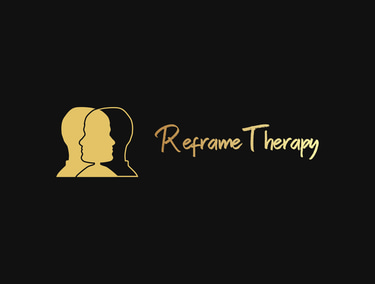Reframe Therapy and EMDR
EMDR Therapy. What is it and how can it help me?
Damien
10/29/20243 min read


Understanding EMDR: A Path to Healing Trauma
In recent years, mental health awareness has grown significantly, leading to various therapeutic approaches designed to help individuals cope with trauma and other psychological challenges. One such method that has gained traction is Eye Movement Desensitization and Reprocessing (EMDR). But what exactly is EMDR, and how can it help those struggling with trauma? Let’s delve into this innovative therapy.
What is EMDR?
Developed in the late 1980s by Francine Shapiro, EMDR is a psychotherapy technique that focuses on helping individuals process and recover from traumatic experiences. It is particularly effective for those diagnosed with post-traumatic stress disorder (PTSD) but can also benefit individuals dealing with anxiety, depression, and other emotional disturbances.
The EMDR Process
EMDR is unique in its approach. The therapy typically involves eight phases:
1. History Taking: The therapist gathers information about the client’s history and current challenges, identifying specific traumatic memories to focus on.
2. Preparation: The therapist explains the EMDR process, establishing a safe environment. Coping strategies are taught to manage distress during the sessions.
3. Assessment: The client identifies specific negative beliefs related to the trauma and desired positive beliefs.
4. Desensitization: This phase involves the use of bilateral stimulation, often through guided eye movements, while the client focuses on the traumatic memory. This helps the brain reprocess the memory.
5. Installation: The therapist helps the client integrate positive beliefs that replace negative ones associated with the trauma.
6. Body Scan: Clients are encouraged to notice any residual physical tension linked to the memory, promoting further processing.
7. Closure: The session concludes with a return to a state of equilibrium, ensuring clients leave feeling stable and safe.
8. Re-evaluation: In subsequent sessions, the therapist checks in on the client's progress and addresses any remaining distress.
How EMDR Helps
1. Reprocessing Traumatic Memories
One of the primary benefits of EMDR is its ability to help clients reprocess traumatic memories that have become stuck in their minds. Traditional talk therapy often focuses on discussing trauma, which can sometimes exacerbate distress. EMDR, however, allows clients to confront these memories in a supportive environment while using bilateral stimulation to aid processing.
2. Reducing Symptoms of PTSD
Numerous studies have demonstrated EMDR's effectiveness in reducing PTSD symptoms. Clients often report significant decreases in flashbacks, nightmares, and anxiety, leading to improved overall functioning.
3. Promoting Emotional Healing
EMDR helps clients identify and change negative beliefs about themselves that have developed as a result of trauma. By replacing these beliefs with more positive affirmations, clients can experience profound emotional healing and self-acceptance.
4. Enhancing Coping Mechanisms
Through the preparation phase of EMDR, clients learn valuable coping strategies. These tools can be beneficial not only during therapy but also in everyday life, helping individuals manage stress and anxiety more effectively.
5. Addressing a Range of Issues
While EMDR is well-known for its effectiveness in treating PTSD, it is also used for a variety of other mental health issues, including anxiety disorders, depression, and phobias. Its adaptable nature makes it a valuable option for many seeking mental health support.
Conclusion
EMDR is a powerful therapeutic tool that offers hope for those grappling with the effects of trauma. By facilitating the reprocessing of painful memories and fostering emotional healing, EMDR empowers individuals to reclaim their lives. If you or someone you know is struggling with trauma-related issues, consider exploring EMDR as a potential path to healing. Always consult with a qualified mental health professional to determine the best approach for your unique needs.
In a world where mental health is increasingly prioritized, therapies like EMDR are helping pave the way toward a brighter, more resilient future.
If you'd like more information on EMDR and how it can help, then get in touch for your free, no obligation Discovery call
